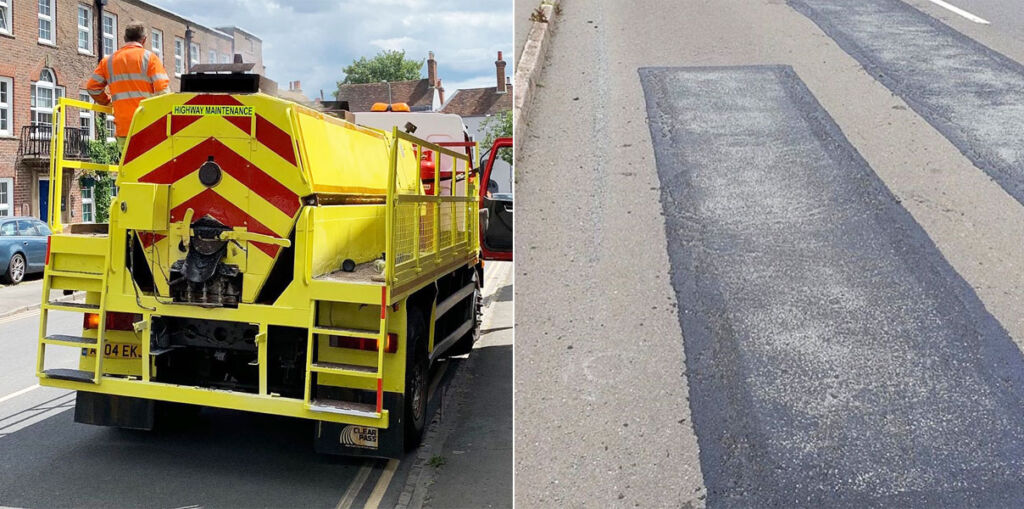
Britain’s road network is in the main, superb. However, with any wide-reaching network comes problems, namely potholes. Thankfully, Uber, Deliveroo and leading supermarkets are coming to the country’s rescue.
This year, probably more than any other in living memory is the time to work together, and this is being shown with great aplomb by some of the country’s most prominent businesses. Deliveroo, Uber, Tesco and Ocado, are uniting with the government to help detect and map England’s pothole hotspots, to identify the roads most in need of repair.
Figures from the RAC, show the breakdown company received 1,766 call-outs for vehicles damaged by faulty road surfaces between April and June this year alone.
The Department for Transport will also work with Gaist, a road data and mapping company, to assess which areas need the greatest attention. Potholes continue to cause despair and anger for motorists up and down the land, with these menaces costing British car owners £4bn in repair costs annually. The British government have in 2020 alone pledged over £3bn of additional funding for pothole repairs, alluding to the misery they cause motorists and councils alike.
There is a new straightforward solution to the problem, and best of all, it utilises recycled materials. Roadmender Asphalt’s rather novel approach to repairing potholes revolves around a new material called Elastomac.

This is designed specifically to sort problems like potholes, and as we’ve mentioned, utilises recycled materials with seven end-of-life tyres in each tonne of Elastomac. Who said innovation was a dying art?
Harry Pearl, CEO of Roadmender Asphalt, sheds light on the importance of innovative thinking led by councils that are helping to transform the efficiency of road repairs.
“After a decade of austerity, councils have naturally gravitated towards innovation and have helped launch R&D hubs, working with innovative SMEs. Together, SMEs and councils have started to ask why are pothole repairs filled with the same materials made to build roads, when they can fill potholes with materials made specifically for the job, that may prove to be significantly more efficient and cost-effective.
Experienced by councils up and down the land, the problem with pothole repairs is they are carried out using a process built around materials designed for building roads rather than fixing them. As a result, the process is more costly, inefficient and ineffective than it needs to be, rather like playing squash with a tennis racquet. You can do it, but it’s far from ideal.”
Read more business-focused articles in our dedicated section here.
![]()




You must be logged in to post a comment.